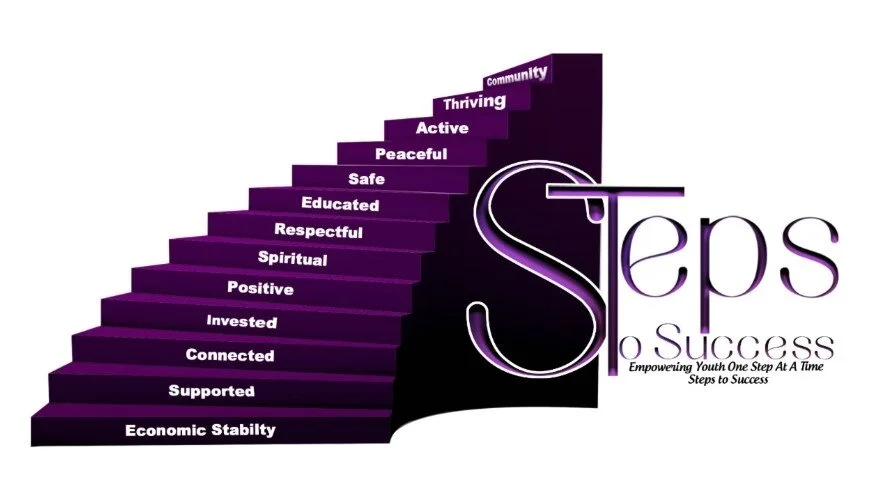A five-year project led by the University of Colorado Boulder aimed at reducing levels of youth violence and promoting positive youth development in Denver’s Montbello neighborhood -- now known as Steps to Success -- was launched in February 2012. The project has served thousands of young people and hundreds of families.
Steps to Success is led by CU-Boulder’s Center for the Study and Prevention of Violence with funding from the Centers for Disease Control and Prevention and in partnership with the CU School of Medicine at the Anschutz Medical Campus, Children’s Hospital Colorado, Families Forward Resource Center, Foundation for Educational Excellence, Denver Public Safety Youth Programs, Denver Police Department-District 5, Crime Prevention and Control Commission, Denver Public Schools and the Boys and Girls Club, Denver Broncos Branch. The grant award was set at $5.46 million.
After the 2012 project launch, two boards were established, baseline data was collected and community members decided on several evidence-based programs to implement with community partners based on their prioritized needs.
A Community Action Plan was launched in April 2013. All of the programs are Blueprints for Healthy Youth Development programs, which means their evaluations have been reviewed by an expert panel of researchers to determine their effectiveness and categorized as either model programs or promising.
The programs implemented in Montbello, some of which are funded and some of which are offered through partnerships, are:
- Promoting Alternative Thinking Strategies (PATHS). This social-emotional learning program for elementary students to reduce aggression and behavior problems in children is in use in four Montbello elementary schools. The curriculum teaches skills related to self-control, emotional understanding, positive self-esteem, relationships and interpersonal problem-solving.
- Strengthening Families 10-14 Program. This program targets children ages 10 to 14 and their families and seeks to reduce problem behavior and improve parenting and family management practices and communication skills. Participants gather for skills building and family engagement activities in the evening and are provided with a meal and child care. This program started at two churches and has grown to also include five schools.
- Positive Family Support. This program is a three-tiered, multi-staged program this is administered in middle schools It strives to reduce problem behavior and risk for substance abuse and depression, improve family management practices and communication skills as well as adolescents’ self-regulation skills and prosocial behaviors. Tier 1 involves the creation of a Family Resource Center while the second tier provides an early, brief intervention in collaboration with parents. The third tier involves families participating in an interview and assessment in the form of a Family Check Up. There are both positive behavioral and academic outcomes associated with this program. This program has been implemented in two schools.
- Incredible Years. This program for pre-kindergarten children and their parents is funded by the Piton Foundation and supported by the nonprofit, Invest in Kids. It uses small group settings to treat children with conduct problems by enhancing social competence, positive peer interactions, conflict management strategies, emotional literacy and anger management. The program increases children’s problem-solving strategies, improves conflict management with peers and reduces oppositional behavior and aggression at home and school. Since 2012, 875 children and 65 parents have participated in the program, all showing statistically significant growth for the targeted indicators. Additionally, 76 teachers from four different schools have been trained and coached to implement the program.
- Multisystemic Therapy and Functional Family Therapy. Both of these programs target youth that have had encounters with the juvenile justice system. The programs seek to enhance parenting skills and provide intensive family therapy to teens. The programs aim to promote pro-social behavior and decrease youth violence and other antisocial behaviors. Steps to Success is working with counselors and restorative justice staff of area schools to identify youth who may benefit from this intervention before they become further involved with the justice system.
In addition, Steps to Success offers use of the Violence, Injury, Protection and Risk Screening Tool (VIPRS). This is a violence risk screening tool that is used to match youth at risk for violence to evidenced-based programs. Area health care clinicians at the Montbello Family Clinic, as well as school-based health clinics have been trained to use this tool during routine appointments to assess youth for their need for services.
Steps to Success also launched a communitywide Positive Recognition Campaign after hearing that youth didn’t always feel they were recognized for efforts they had made at school, home and in the community. In partnership with the Boys and Girls Club, Steps to Success launched its first awards night last April and provided 36 awards to children in the categories for behavior, growth and community service. This was followed by a Community Awards night in October that gave community members an opportunity to honor each other. A third awards night was held in April at the Boys and Girls Club – providing awards to 55 students. The overall goal is to “change the culture and make acknowledging people second nature,” said Shelli Brown, community site manager for Steps to Success.
A second community survey will be launched this fall to collect data that will be compared against the original baseline data.
Steps to Success also has created a Sustainability Committee that is looking at ways to sustain all of the efforts made over the past three years once the project funding has ended, Brown said.
A news release on the initial project launch is posted
at http://www.colorado.edu/news/releases/2012/02/02/cu-boulder-led-effort-reduce- youth-violence-denver’s-montbello-neighborhood.
The Center for the Study and Prevention of Violence is part of CU-Boulder’s Institute of Behavioral Science. More information on the center is posted at http://www.colorado.edu/cspv/, including a link to all Blueprints for Healthy Youth Development programs.
For more information contact Shelli Brown at 303-981-2275 or shelli.brown@colorado.edu.
